Psychedelic drug Wikipedia
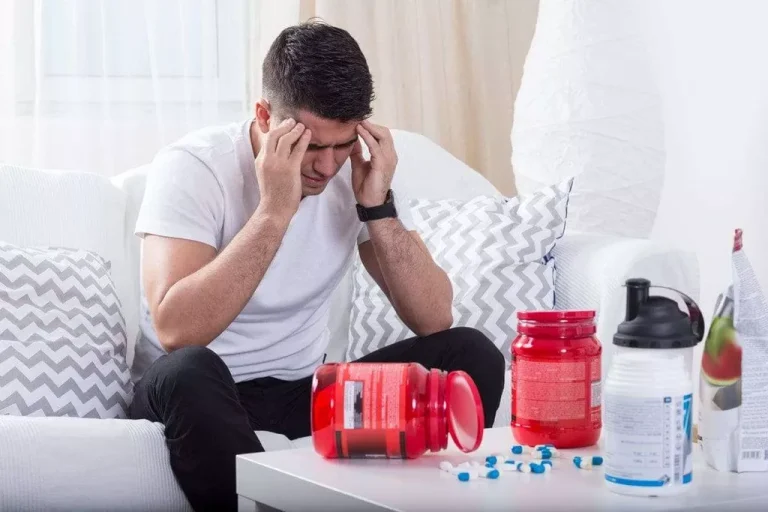
While some people take magic mushrooms solely for their psychoactive effects, researchers have also explored psilocybin’s potential therapeutic benefits. Psychedelic exceptionalism is the ideology driving some activists to advocate for legal protection for psychedelic drugs while not changing the drug laws about other substances. It’s called psychedelic exceptionalism because it carries the assumption that psychedelics are less harmful, less addictive and offer more potential benefit than other drugs; therefore, psychedelics should not be criminalized.
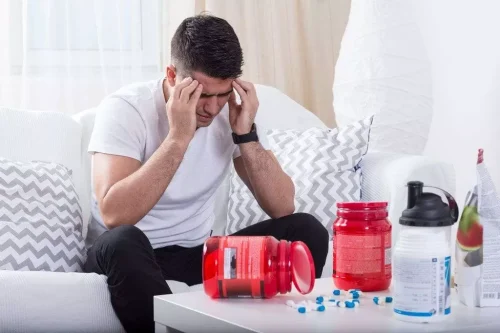
Ayahuasca Retreat in the Jungle: Pro-Tips and Your 10 Must Have Items
This designation aims to improve the research process and hasten the development of drugs that show great promise in treating serious illnesses. If its classification is changed, https://ecosoberhouse.com/ psilocybin mushrooms could then potentially be available by prescription. Psilocybin is considered one of the most well-known psychedelics, according to the Substance Abuse and Mental Health Services Administration (SAMHSA).
- This helps explain why kids effortlessly learn all kinds of things, like how to ski or speak a new language.
- Evaluation of psychedelics’ influence on cellular and molecular neuroplasticity in preclinical and clinical studies.
- These hallucinations may be key to understanding how shrooms could help ease depression.
- While some people take magic mushrooms solely for their psychoactive effects, researchers have also explored psilocybin’s potential therapeutic benefits.
- Plasticity may be key to at least allowing that growth to happen, but it’s only the first step.
- In ongoing experimental research, a single psilocybin dose under controlled conditions is showing promise for relieving mental health symptoms such as depression.
Are psychedelic and dissociative drugs legal?

It is important to note, however, that studies such as this are based on self-reports by people who have taken psychedelics in the past. In order to determine if psychedelic therapy is truly effective in the treatment of alcohol and substance use disorders, more research using randomized clinical trials is needed. Psilocybin may also be helpful in the treatment of depression and anxiety when these mental health conditions are specifically linked to life threatening diseases, according to a 2020 systematic review and meta-analyses of clinical trials in Biomedicines. People with depression or anxiety often have low levels of serotonin, as do people with post-traumatic stress disorder, cluster headaches, anorexia, smoking addiction and substance abuse. Treatment typically involves selective serotonin reuptake inhibitors, or SSRIs, which boost levels of serotonin available to brain cells.
Full Guide: Psychedelic Medicine 101
“There is evidence that the brain becomes more flexible or ‘plastic’ after a psychedelic,” says Johnson. “On average, participants indicated the belief-changing experience in question occurred eight years prior to taking the survey, so these belief changes may be long-lasting,” says Nayak. The average half-life of psilocybin ranges from one to two hours and it generally takes five to six half-lives for a substance to be eliminated from your system. Other U.S. cities have followed suit, including Santa Cruz in California and Ann Arbor in Michigan. Psilocybin mushrooms look like dried ordinary mushrooms with long, slender stems that are whitish-gray and dark brown caps that are light brown or white in the center. Magic mushrooms are often prepared by drying and are eaten by being mixed into food or drinks.
How Psychedelics Change the Brain
Factors such as dosage, environment, and personality play a role in how psychedelics affect people. Then again, other treatments for mental health conditions have their own costs and insurance issues. Ketamine, electroconvulsive therapy (ECT), repetitive transcranial magnetic stimulation (rTMS), and even a typical round of talk therapy can cost thousands of dollars. Scholar William James said the value of a transcendent experience should be judged by its fruits — that is, the way in which your outlook or behavior changes after the experience. By that standard, the fruits of psychedelic-assisted psychotherapy — at least in current clinical trials — are impressive indeed. Still, though in its infancy, there is some research that aims to uncover the particular physical changes in the brain from psychedelic drugs that help people get better.
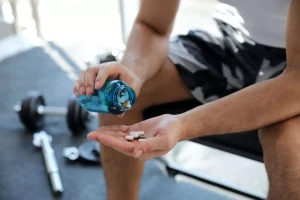
What Research Says About Psychedelics as Mental Health Treatments
LSD, a long lasting, potent psychedelic that’s considered to be the prototype for therapeutic psychedelics, has been shown to help with both alcohol use disorder and anxiety in people living with terminal illnesses. Researchers have also completed a phase 3 trial, which determines whether a treatment works better than what’s currently available, involving MDMA-assisted therapy for PTSD. Multiple phase 2 clinical trials — which are done to discern whether a treatment works — suggest that MDMA can treat PTSD symptoms for up to 4 years. In low doses, it has shown to be beneficial in numerous trials exploring its potential to treat depression, but its effects are short-lived. While Indigenous communities have used psychedelics in therapeutic and religious settings for centuries, psychedelic therapy is relatively new in Western clinical settings.
Psychedelics Open Your Brain. You Might Not Like What Falls In.
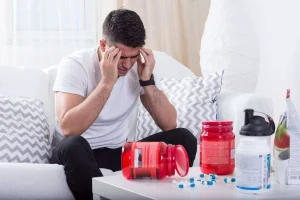
The cost could run into the hundreds or thousands of dollars, according to scientists involved in the research. MAPS, a nonprofit research organization that is working to bring MDMA-assisted psychotherapy to market, estimates their treatment cost at $14,000 per case for PTSD, no matter the seriousness. That’s compared to an annual cost for conventional PTSD treatments that ranges between $5,000 and $24,000, depending on the seriousness of the case. MAPS estimates that insurers would almost certainly save money are psychedelics addictive on most cases 3 years into treatment. For example, methadone targets specific opiate receptors to help prevent withdrawal symptoms from heroin addiction. SSRIs (antidepressant meds) make more serotonin available to improve brain cell messaging.
- Dr. Carl Hart, professor at Columbia University and recent author of the book Drug Use for Grown Ups, often speaks out against psychedelic exceptionalism.
- Study participants completed an internet-based survey that included questions focused on belief changes attributed to a single psychedelic experience with a classic psychedelic substance (e.g., psilocybin mushrooms, LSD, ayahuasca).
- But many of the basic mechanisms of these drugs remain poorly understood, in a field of medicine that has barely begun to recover from decades of government-enforced stigmatization.
- Last year, a patient of mine, a woman in her early 50s, decided to try psilocybin with a friend.
- Based on this research, the US Food and Drug Administration has described psilocybin as a breakthrough medicine, “which is phenomenal,” Stamets said.
Consuming shrooms can result in a mild trip, with feelings of relaxation or drowsiness, to a frightening experience marked by hallucinations, delusions, and panic. The amount of psilocybin and psilocin contained in any given magic mushroom is unknown, and mushrooms vary greatly in terms of the amount of psychoactive contents. This means that it is very hard to tell the length, intensity, and type of “trip” someone will experience.
- People who use psychedelics may experience one or several of a range of side effects, which range from moderate to severe.
- Moreover, the increased attributions of consciousness did not decrease in those who completed the survey years after the psychedelic experience.
- Psychedelic therapy is a technique that involves the use of psychedelic substances to aid the therapeutic process.
- MDMA (3,4-methylenedioxymethamphetamine), also called Ecstasy or Molly, is a synthetic compound that has successfully undergone confirmatory Phase 3 clinical trials for the treatment of moderate to severe PTSD.
- Take our free, 5-minute substance abuse self-assessment below if you think you or someone you love might be struggling with substance abuse.
- Neither do they produce excessive stimulation like that experienced with cocaine or amphetamine.
This does not mean that psychedelics are for everyone or that they are inherently helpful. The Diagnostic and Statistical Manual of mental disorders (DSM-5) uses the name Substance Use Disorder for what is commonly referred to as addiction. There’s still a lot to learn about the potential of psychedelic therapy, but the existing research is promising, particularly for those with severe PTSD. If you’re interested in participating in a psychedelic-assisted treatment in a clinical setting supported by an expert, a good place to start is the database of accredited therapists maintained by the Multidisciplinary Association for Psychedelic Studies.
Press Play for Advice On Treating Emotional Pain
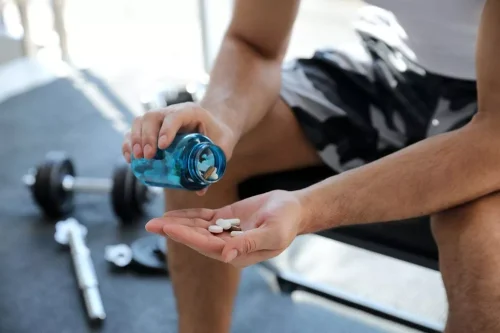
Research shows that psychedelics like psilocybin may help treat serious mental health conditions, including anxiety, depression and post-traumatic stress disorder. The designated therapeutic spaces are designed to help people process the, at times, extreme experiences they can have while under the influence of the hallucinogens. Psychedelics’ influence on neuroplasticity is investigated in preclinical (in vitro/in vivo) and clinical studies (Figure 2).
